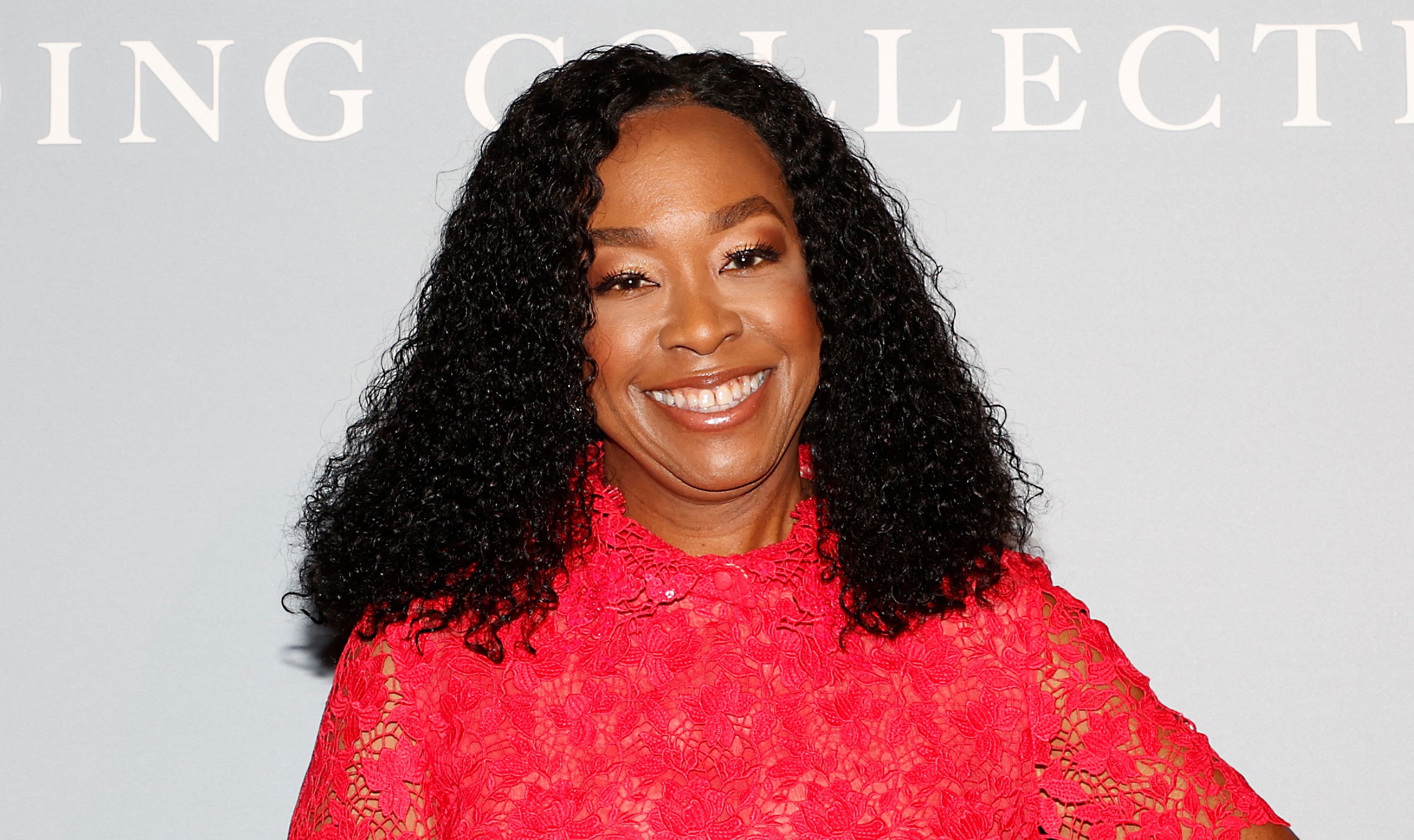Imposter syndrome? I don’t know her! Why women need to take a leaf out of Shonda Rhimes’s book
The powerhouse behind ‘Bridgerton’ and ‘Grey’s Anatomy’ puts her success down to ‘self-belief’. If only more of us could skip the doubt, perhaps we’d find women at the helm more often, writes Helen Coffey


If there’s one woman I’d have bet cold, hard cash on not suffering from imposter syndrome, it’s Shonda Rhimes. (Well, her and Liz Truss – though the latter arguably really should have had it.) Everything I’ve ever heard and read about the creator of hit shows ranging from Grey’s Anatomy to Bridgerton suggests that here is not a person much prone to self-doubt.
This is a woman who has been named one of the 100 most influential people in the world by Time on three separate occasions; a woman who, with a net worth in the region of $250m, is one of the wealthiest female entertainers in the US; a woman who became the first to create three television dramas – Grey’s Anatomy, Private Practice and Scandal – that have achieved the milestone of 100 episodes. She’s so laughably bankable that Netflix famously signed her for a reported $150m in 2017 to “just make the shows you want to make”. She’s been described as the Oprah Winfrey of television.
Still, even with all that as the impressive backdrop, her words in a recent interview nearly broke my brain. “People often say they feel like they’re an imposter, and someone’s going to find them out,” she told The Times. “But it doesn’t make sense to me. I belong in every room I’m in. If I got in the room then I belong in that room. I am there, aren’t I?”
I belong in every room I’m in. Oh, the jealousy that coursed through my veins when I read those words!
She is, of course, absolutely right; the logic is entirely sound. But “logic” and “sense” have very little to do with the insidious creep of imposter syndrome, which wriggles its way through any crack in confidence and, once inside, expands to fill the space like a suddenly deployed car airbag. It mercilessly exploits and amplifies your every insecurity. It squeezes the oxygen out of your remaining self-belief, leaving it like the lifeless, rubbery tatters of a popped balloon. And, while it’s not exclusively the preserve of women, we are usually far more susceptible to its dark whims.
To the extent that, when I read Rhimes’s words, a treacherous thought snuck into my head that she must, surely, be insanely arrogant? It was the only explanation that my mind could initially fathom. After all, not one of the successful women I know really feels they deserve to be in their position – not deep down. From NHS consultants to trail-blazing entrepreneurs, from top-flight editors to heads of communication for powerful leaders, all these women share the underlying terror that they’re “going to be found out”, as Rhimes puts it. That someone, somewhere, is going to ask them a question they don’t know the answer to, or to do a task they’re unable to perform, and that will be it – the jig is up. Career over.
This fear, irrational as it is, continues to blight my female friends regardless of whether or not they’re objectively acing their respective professions. It’s not always spoken about openly, but it’s always there, lying in wait – and after a few glasses of wine out it comes, like a many-headed sea monster rising from the briny deep.

You can seemingly still be plagued by it no matter how successful you get, from Ellie Goulding saying that her anxiety comes “from what they call ‘imposter syndrome’, not believing in myself enough and thinking that I don’t deserve happiness”, to Michelle Obama, of all people, admitting that her imposter syndrome “never goes away”: “It doesn’t go away, that feeling that you shouldn’t take me that seriously. What do I know?”
In this context, Rhimes feels like something of a unicorn. Though it makes more sense when you consider that self-confidence was drilled into the award-winning Black writer, producer and showrunner, along with her five older siblings, by their successful academic parents. “It was already an established fact when I came into the world that in our household we were smart, we were outspoken, so it never occurred to me that we didn’t have power,” she says. “I was raised to never be interested in what other people believed I could do, so their opinions didn’t really matter at all.”
Not one of the successful women I know really feels they deserve to be in their position – not deep down
Her father “was very serious that, for girls of colour, the possibilities were limitless”. She recounts the story of when her mother turned up at her school within 10 minutes of the counsellor telling Rhimes she shouldn’t bother applying to Ivy League universities – “She said, ‘Honey, sit right down in the lobby.’ Ten minutes later she came out of the office, had her coat on, her purse ready, and said, ‘You can go to any college you want’” (Rhimes ended up attending the prestigious Dartmouth).
I can only salute Rhimes’s parents. Imagine if all women were raised this way, particularly women of colour – instilled with the belief that they really were capable, that they really could do anything, that if they worked hard they really did deserve all the success that came their way? Imagine if we were taught that confidence, self-assuredness and pride in your accomplishments had nothing to do with arrogance and everything to do with inherently knowing your worth?
Sure, maybe we’d wind up with a few more delusional 50-day prime ministers so bad they have a shelf-life shorter than that of a lettuce (here’s looking at you, Liz). But we’d also have plenty more women like Rhimes: talented leaders in their field, at the top of their game, channelling all the energy that’s currently being wasted on doubting themselves into achieving positions of real power. Now that might even be worth enduring a Truss autobiography for.
Join our commenting forum
Join thought-provoking conversations, follow other Independent readers and see their replies
Comments
Bookmark popover
Removed from bookmarks